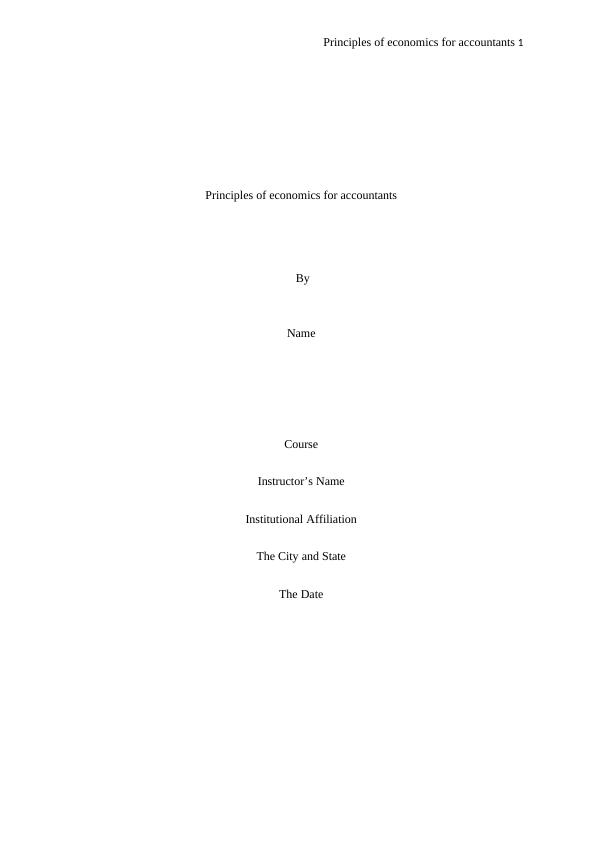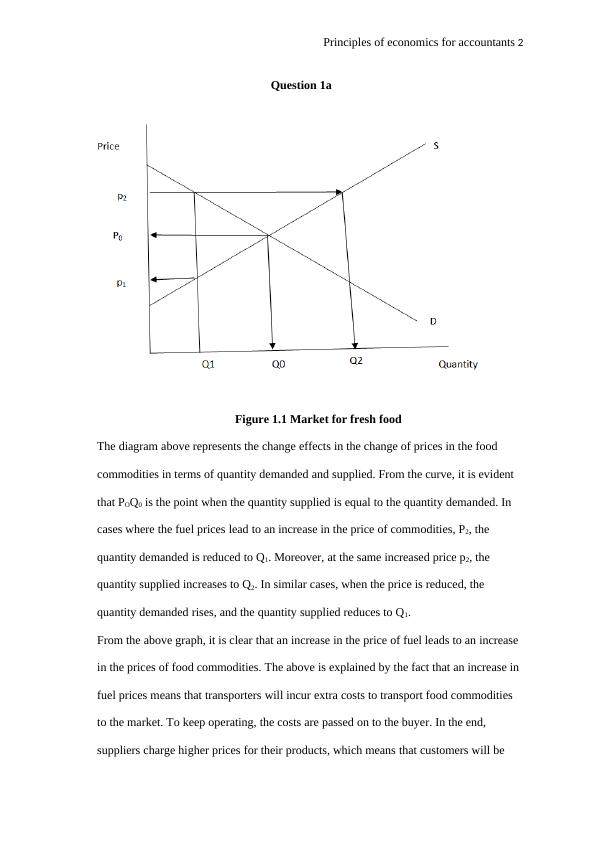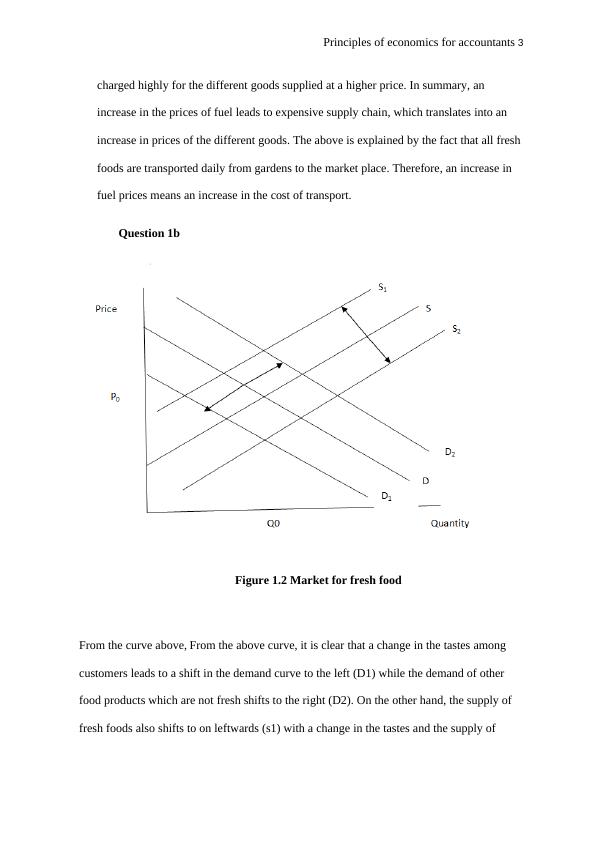Principles of economics for accountants
Answering questions and completing diagrams based on an article about the impact of high petrol prices on the cost of fresh food for consumers.
6 Pages832 Words424 Views
Added on 2023-03-30
About This Document
This document provides an overview of the principles of economics for accountants, including the effects of fuel prices on food commodities, changes in tastes and preferences, being price takers in the market, and the concept of cross-elasticity of demand. It also includes a reference to an article on rising petrol prices and their impact on the cost of fresh food for consumers.
Principles of economics for accountants
Answering questions and completing diagrams based on an article about the impact of high petrol prices on the cost of fresh food for consumers.
Added on 2023-03-30
ShareRelated Documents
End of preview
Want to access all the pages? Upload your documents or become a member.
ATMC BUS502 Principles of Economics for Accountants - Assessment Task 2
|4
|876
|23
ATMC BUS502 Principles of Economics for Accountants
|4
|832
|50
Economic Principles- Assignment
|16
|2331
|33
Economics for Business - PDF
|12
|3003
|233
ECONOMICS. 2. : ECONOMICS. Economic Principles and Deci
|4
|363
|38
Assignment on Business Economics
|7
|617
|35



